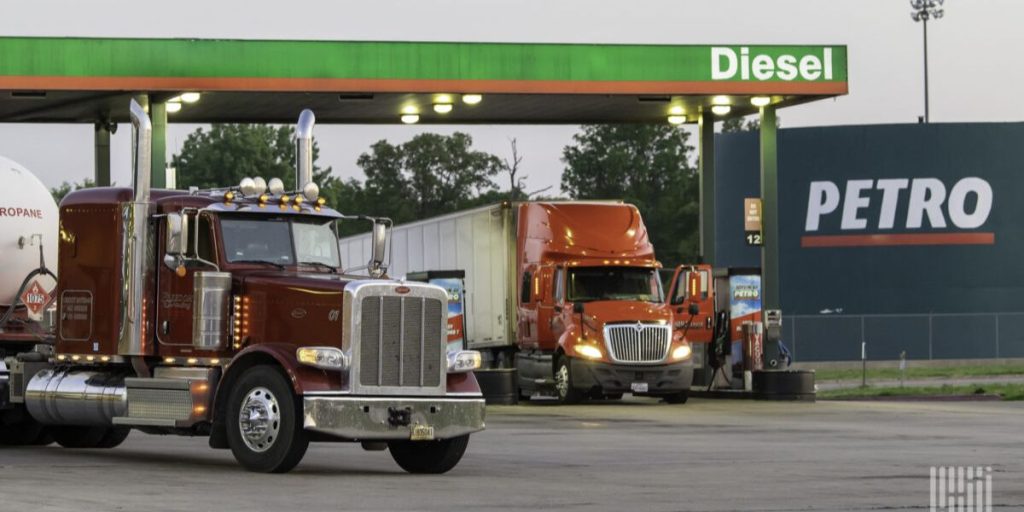The Biden administration finalized a rule on Friday that is likely to increase the number of electric trucks in the United States.
It’s difficult to predict exactly what percentage of new heavy-duty truck purchases will be electric under the regulation, administration officials said, noting that the rule applies to eight distinct truck classes.
However, experts predict that the electric percentage of heavy vehicle sales will approach 20% by 2040.
According to one hypothetical scenario stated in the rule, sales of lighter heavy-duty vehicles might be 60% electric in 2032, medium heavy-duty trucks could be 40% electric, and big heavy-duty trucks could be 30% electric in 2032.
The truck rules do not require a shift to electric cars. Instead, they established average pollution limitations for truckmakers’ fleets, which are expected to push them toward electric and other low-emission technologies such as hybrids.

The Environmental Protection Agency’s (EPA) rule also outlines an alternative scenario in which electric trucks are replaced by hybrids and trucks fueled by natural gas and hydrogen to achieve the standards.
The approved truck rule, like recently adopted passenger vehicle standards, relaxed requirements for the first several years of the program compared to what would have been necessary under the proposed rule. This was done to enable the development of new technology as well as the deployment of additional charging infrastructure.
However, according to an EPA representative, the revised regulation is likely to reduce emissions slightly more than the proposed rule.
By 2055, it is estimated to prevent a billion metric tons of greenhouse gas emissions, which is about equivalent to the emissions of 263 coal plants for a year.
According to the proposed version of the regulation, transportation accounts for around 27% of the United States’ global warming emissions, with heavy-duty vehicles accounting for roughly 25% of total emissions.
Furthermore, officials expect the law to cut other types of pollution emissions, which will enhance public health.
“An estimated 72 million Americans, often people of color or those with lower incomes, live near freight truck routes,” EPA Administrator Michael Regan stated.
“These communities are disproportionately exposed to the pollution from heavy-duty vehicles, resulting in higher rates of respiratory and cardiovascular illnesses and even premature death,” he said. “Reducing emissions from our heavy-duty vehicles means cleaner air and less pollution.”
A trade group representing truck makers raised alarm about the rule.
“We are concerned that the final rule will end up being the most challenging, costly, and potentially disruptive heavy-duty emissions rule in history,” Jed Mandel, president of the Truck and Engine Manufacturers Association, said in a written statement.
His group was particularly concerned about the availability of charging infrastructure and if customers would buy enough electric trucks to keep manufacturers in compliance.
Other opposition has been more explicit, with Republicans promising to draft a resolution to reverse the regulation.
Sens. Pete Ricketts (R-Neb.) and Dan Sullivan (R-Alaska), along with Reps. John James (R-Mich.) and Russ Fulcher (R-Idaho), said in a joint statement that Biden’s “EV mandate for heavy trucks will make everything more expensive as it wreaks havoc on our nation’s supply chain and makes us more reliant on China.”
“We will be introducing Congressional Review Act legislation in both the House and Senate to make sure Biden’s EV mandates never become reality,” he said.
The plan, however, has little prospect of success because it requires the president’s permission or sufficient majorities to overturn a presidential veto.
Meanwhile, two oil industry groups threatened a lawsuit.
“This misguided rule should be overturned by Congress, but in the meantime, our organizations are prepared to pursue legal challenges,” said a joint statement from Chet Thompson and Mike Sommers, leaders of the American Fuel & Petrochemical Manufacturers and American Petroleum Institute lobby groups.
While environmental groups hailed the amended standards, some said that they should have gone much further in reducing truck emissions.
“These EPA standards will help protect our families from dangerous pollution while steering us toward a safer climate,” Guillermo Ortiz, the Natural Resources Defense Council’s clean vehicles advocate, said in a written statement.
However, he stated, “This rule could have done more.”
“Every cough and gasp for air in communities impacted by freight movement serves as a reminder of the need to act. “The federal government must fully address this scourge on our families.”